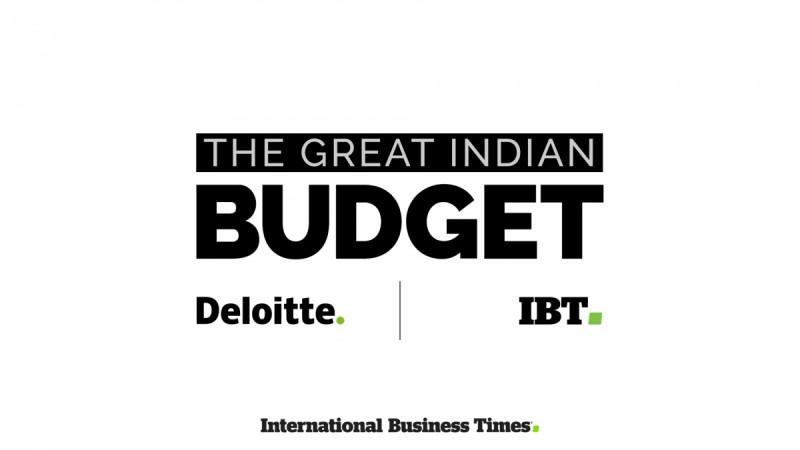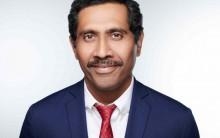
The expectations from Union Budget 2018 are plenty and rightly so. The reason; this is going to be the first budget post GST (Goods and Services Tax) and demonetisation. Finance minister Arun Jaitley will be presenting the Modi government last full budget on 1st February.
In a conversation with International Business Times Executive Editor Danish Manzoor, three experts from Deloitte India Kalpesh Maroo (Direct Tax), Saraswathi Kasturirangan (Personal Tax) and Vishweshwar Mudigonda (Direct tax-Transfer Pricing) shared their expectations and the reforms they want the budget to propose.
It would be interesting to see how India reacts to US tax reforms:
Kalpesh Maroo, Direct tax expert and partner, Deloitte India, says, "It's really difficult to guess at this point of time what to expect, as there are stupendous tax reforms in US and it will be very interesting to see how India reacts to that."
He also mentions how finance minister has promised to bring down the corporate tax to 25 percent. He says, "If this is the last budget of this government, we will have to see whether this announcement is preponed to this year or is shifted towards the next year. This is the largest single factor industries are looking up to."
Maroo also talked about how the ease of doing business in India might be at the helm of Budget 2018. He says, "It's no secret that Prime Minister Narendra Modi is personally monitoring the index of ease of doing business in India and it's high on his agenda." However, the question is, does the government has the fiscal room in order to implement it in the current year, he said.
"We are just settling in the post GST era. While the December collection numbers are really positive, we still don't have the exact numbers which can tell where do we exactly stand right now. Secondly, the cushion which government had in its first three years in the form of oil prices are now hardening up. Due to which the prices are going to remain hard as they are, which in turn is going to put pressure on the subsidies."
Also Read: Union Budget 2018: AI and robotics need more funds and policy framework, say home-grown pioneers
On being questioned if he were the finance minister, what changes he would have brought in, Maroo said he's glad that he's not. However he insists on a strategic reset and would like to see India reacting to what's happening around it. He said, "I would like to bring down the corporate tax rates, would abolish MAT (Minimum Alternate Tax) as it has outlived its utility. Also, I would like to finish DDT (Dividend Distribution Tax) as well."
Finance minister should reduce litigations:
Vishweshwar Mudigonda, partner, Deloitte India threw some light on how India could be made more investment-friendly. "The first thing Finance minister should do is to look for the simplification and implementation of tax laws," he said.
Mudigonda insists that until the laws are not simplified, India cannot become investment friendly. Further, he says that the biggest challenge today is the tax litigations which can go till Supreme court which takes 10-15 years to settle. Mudigonda says, "Finance minister should make a way to reduce these litigations in this budget. Law minister has talked about pre-litigation mediation and this is very necessary in the area of transfer pricing." He says that DRP (Dispute Resolution Panel) should be used adequately to mediate before the litigation.
On being questioned, what are the areas which should be taken into consideration by the Finance ministry, Mudigonda answers, "India should attract enough foreign investment, whether it's in infrastructure or in the education sector. These are the most important factors to be looked upon and this can be achieved only by increasing the ease of doing business."
However, on being asked what changes he would want to see as the finance minister himself, he had few recommendations. "Firstly I'm glad I'm not the finance minister. However, on a personal front, I would like to develop the education and skill development sector. Secondly, I would like to reform the infrastructure whether it's the industries or the agriculture sector. Thirdly, when the policies are announced, enough noise is being made but we must ensure that grassroots level work for those policies is being done or not."
Salary class have high expectations from this budget
Saraswathi Kasturirangan, partner, Deloitte India, talked about the expectation of salaried class from this budget. "Government is looking towards a significant economic growth so it's very fair from the salaried class to look for some respite in this budget," she said.
To increase this growth, Kasturirangan recommends that it's important to boost the consumption and demand of the salaried class. However, she says that the government will have to find the right balance as only around 2.4% of the total population is filing returns at present.
She says, "If we look for people who are earning over Rs 5 lakh per annum there are around 6-7 lakh people out of which again 5-6 lakh are salaried class. Naturally, this is a very key population and should be catered accordingly."
When one of our readers asked during the live Q&A, whether there is a chance of income tax being completely waived, Kasturirangan replied: "No, I believe income tax is here to stay and we should not expect anything that dramatic in the upcoming budget."
"I would like to gamble and will try to push the tax slab. According to me, this is the perfect way to bring more investment in the economy," Kasturirangan said when quipped what she would have done if she were the FM.

















